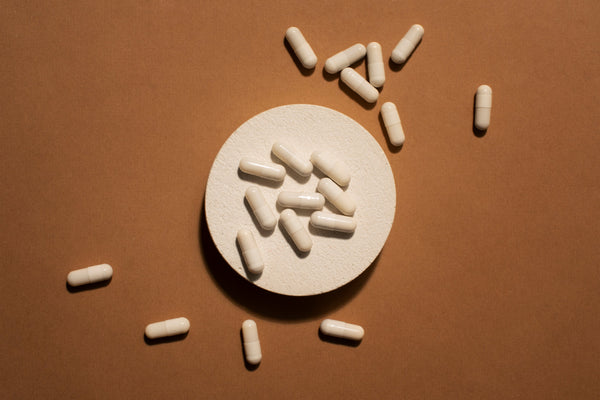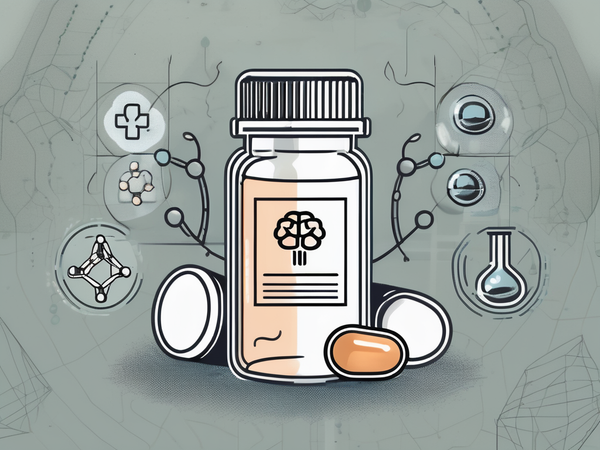You may feel tired or unmotivated on a dark, rainy, or cold day. This is a common reaction to the lack of sunlight in the winter or monsoon season, which can affect your mood and energy levels. However, for some people, this seasonal slump can be more serious and lead to seasonal depression, also known as Seasonal Affective Disorder. This is a type of mood disorder that occurs when the seasons change and causes symptoms that are more intense than the usual weather blues. But can what you eat make a difference in how you feel? In this blog post, we will explore how nutrition and seasonal depression are connected.
What is Seasonal Depression?
Seasonal depression, as the name suggests, is a form of depression that is triggered by seasonal changes and is also known as SAD (Seasonal Affective Disorder). It is recognized as a major depressive disorder with Seasonal Patterns in the Diagnostic Manual of Mental Disorders (DSM-5). This disorder affects individuals typically at the same time each year, most commonly during the onset of winter or during monsoon season. A tiny percentage of people do, however, suffer from seasonal depression in the summer.
It is speculated that the main reason behind Seasonal Affective Disorder is limited exposure to sunlight during the winter or monsoon season, which disrupts the internal body clock that regulates the daily cycle of sleep and wakefulness. The circadian rhythm is influenced by the amount and timing of sunlight exposure, which varies throughout the year. When the days get shorter and darker, the circadian rhythm may get out of sync with the natural day-night cycle, leading to mood and energy changes.
One of the main factors that affect the circadian rhythm is melatonin, a hormone that is produced by the pineal gland in the brain. Melatonin helps regulate sleep and alertness, and its production is controlled by light and dark signals. However, in people with SAD, this process may be disrupted by the lack of sunlight in the winter or monsoon. They may produce too much melatonin during the day, making them feel sleepy and lethargic, or too little melatonin at night, making them feel restless and unable to sleep well.
Another factor that affects the circadian rhythm is serotonin, a neurotransmitter that is involved in mood regulation, appetite, and cognition. Serotonin levels are also influenced by light exposure, diet, and exercise. When there is enough sunlight, serotonin levels are high, contributing to a positive mood and well-being. When there is not enough sunlight, serotonin levels are low, contributing to a negative mood and depression.
Diagnosis & Signs of Seasonal Depression
The symptoms and severity of SAD may vary from person to person. Your doctor may diagnose you with seasonal depression if you tend to experience these symptoms regularly every autumn, monsoon, winter, or summer and they subside with the change in season. Some of the common symptoms of depression include:
- Irritability
- Low self-esteem
- A feeling of guilt and worthlessness
- Low libido
- Loss of interest in routine activities
- Persistent low mood
- Lethargy
- Excessive sleep
- Avoiding social gatherings
- Increased appetite
Note: Your chances of developing SAD increase if it runs in your family.
How is Seasonal Depression Linked to Nutrition?
Nutrition plays a significant role in the development, severity, and duration of depression. Skipping meals, increased sugar cravings, and reduced appetite are some common eating patterns observed with depression. Depression is associated with eating disorders such as undereating in some cases and overeating in others. A diet high in sugar is linked to depression. Similarly, when depressed, people resort to sugary foods as they activate the reward system of the brain, which boosts dopamine levels (feel-good hormones).
However, there are some nutrients that can help your brain function better and improve your mood. These include vitamins and healthy fats that are essential for your mental health. Here are some of the most important ones and how they are related to depression:
- Vitamin D
According to a study, low levels of Vitamin D have been linked to Seasonal Affective Disorder. Production of vitamin D levels fluctuates seasonally depending on the availability of sunlight. Ultraviolet rays from the sun convert precursors in the skin into vitamin D3. Since sunlight plays an important role in the synthesis of Vitamin D3, it is also known as the "sunshine vitamin". Vitamin D deficiency is common during the monsoon and winter due to the limited availability of sunlight. Since vitamin D is also involved in the production of mood-regulating hormones such as dopamine and serotonin, its deficiency is likely a contributing factor to seasonal depression.
- Vitamin B12
One of the studies conducted in 2013 states that vitamin B12 plays a significant role in the development of depressive symptoms. Another study conducted in 2017 indicated that vegetarians who were deficient in vitamin B12 were more likely to develop neurological problems. Psychiatric and neurological problems due to vitamin B12 deficiency may manifest as irritability, personality changes, memory loss, and depression. Vitamin B12 deficiency has been shown to worsen depression symptoms by causing the buildup of the amino acid homocysteine. Homocysteine is an amino acid that is typically converted by vitamin B12 into methionine. In the absence of vitamin B12, the concentration of homocysteine increases. High levels of homocysteine, also known as hyperhomocysteinemia, have many negative effects on our health, including Major Depressive Disorder.
- Omega-3 fatty acids
Omega-3 fatty acids are crucial for preserving mental health. They have proven significant in controlling mood-related diseases, including anxiety, stress, and depression. By preserving the integrity of brain cells, omega-3 fatty acids like EPA and DHA, which have the capacity to penetrate cell membranes, increase mood-lifting hormones such as dopamine and serotonin. A diet low in omega-3 fatty acids is associated with low levels of serotonin and dopamine. Studies have also confirmed that deficiencies in dietary omega-3 fatty acids make a significant contribution to depression and depressive symptoms.
Effective Ways to Manage SAD
- Exposure to Natural Light: Try to go out and expose yourself to natural sunlight whenever possible. Your body will be able to synthesize Vitamin D efficiently when exposed to sunlight. Try to stay outdoors for longer hours during the winter months for maximum sunlight exposure. You may also go out for a walk when it isn't raining and the sun peeks out for a while during the monsoon season.
- Bright Light Therapy: Bright light therapy has been proven to be beneficial in the treatment of SAD. It involves sitting close to a special source of light of 2500 lux intensity for a minimum of 30 minutes at eye level. It is considered the first line of treatment for SAD. Lightboxes, also known as SAD lamps or sun lamps, are specifically designed to solve the problems faced by a lack of sunlight exposure by imitating the natural sunlight.
- Right Nutrition: Foods rich in vitamins, minerals, and omega-3 fatty acids are great for your overall brain health and may help in treating depression. Opt for diets low in junk and processed foods. At the same time, ensure sufficient intake of vitamin D through fish liver oils, fortified cereals, beef liver, fortified orange juice, fortified dairy products, and egg yolk. Similarly, Vitamin B12 can be obtained through seafood, beef, and fermented foods. Omega-3 fatty acids are abundant in certain fish such as salmon, mackerel, tuna, herring, and sardines, while vegetarians can opt for flaxseeds, walnuts, chia seeds, edamame, etc. Given that the majority of vitamin B12 and vitamin D3 come from animal sources, vegans may have trouble satisfying their vitamin D needs. If you are a vegan or prefer a vegan source for your dose of essential vitamins, you may buy vitamin B12 supplements and vitamin D3 supplements. Some of the best vitamin B12 supplements that are plant-based are available as vitamin B12 strips. Unlike other traditional supplement pills, these vitamin B12 strips are 100% bioavailable, free from sugar and preservatives, and instantly dissolve on the tongue for quick absorption. Similarly, some of the best vitamin D3 supplements are also available in thin oral strips enriched with plant-based vegan D3 (From Lichen). Consuming Omega-3 supplements can also be helpful in meeting your dietary needs if your diet lacks them. Remember to check with your doctor before starting any new supplement.
Wrapping Up
Feeling sad and experiencing SAD (Seasonal Affective Disorder) are two different things. SAD is a far more severe form of the weather blues, characterized by a lack of focus, irritability, insomnia, loneliness, suicidal thoughts, etc. Having nutritional deficiencies like vitamin D and Vitamin B12 could also act as a contributing factor, so ensure their optimum intake through diet and/or vitamin D and vitamin B12 supplements.
References
https://mcpress.mayoclinic.org/mental-health/seasonal-affective-disorder/?mc_id=global&utm_source=webpage&utm_medium=l&utm_content=epsmentalhealth&utm_campaign=mayoclinic&geo=global&placementsite=enterprise&invsrc=other&cauid=177193
https://www.helpguide.org/articles/depression/seasonal-affective-disorder-sad.htm
https://careinfo.mayoclinic.org/mh-depression?mc_id=google&campaign=18473446945&geo=1007785&kw=seasonal%20affective%20disorder&ad=625174066710&network=g&sitetarget=&adgroup=141472125306&extension=&target=kwd-10190591&matchtype=b&device=c&account=7470347919&placementsite=enterprise&gclid=Cj0KCQjwz8emBhDrARIsANNJjS7eUiUvxF58nAhCeaCWinQ0EHC2_pZDD8YNGm58yyimhg01sLMkvLgaAkieEALw_wcB
https://www.psychiatry.org/patients-families/seasonal-affective-disorder
https://onlinelibrary.wiley.com/doi/abs/10.1002/cbl.30275
https://my.clevelandclinic.org/health/articles/21527-homocysteine

























